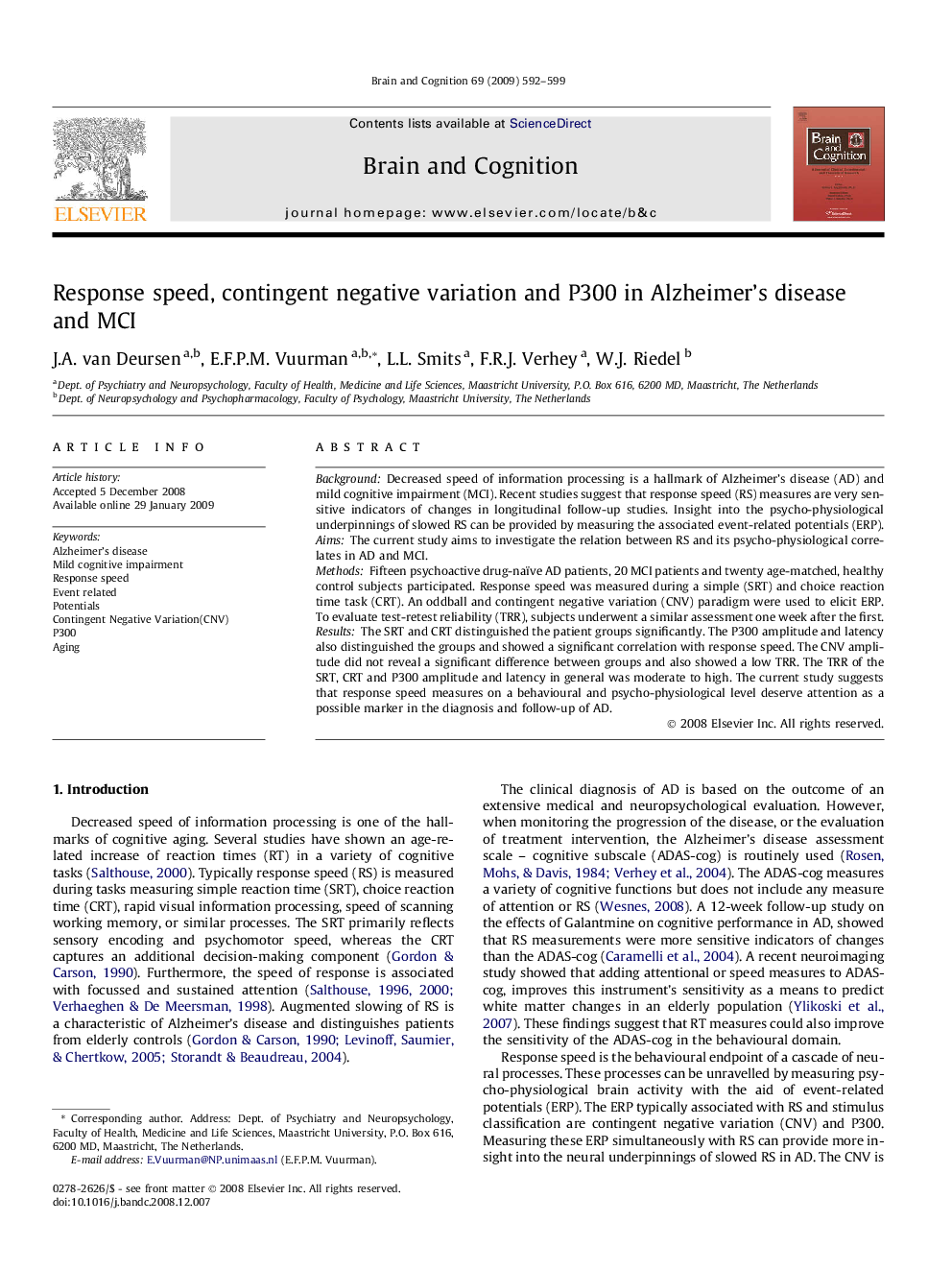| Article ID | Journal | Published Year | Pages | File Type |
|---|---|---|---|---|
| 924495 | Brain and Cognition | 2009 | 8 Pages |
BackgroundDecreased speed of information processing is a hallmark of Alzheimer’s disease (AD) and mild cognitive impairment (MCI). Recent studies suggest that response speed (RS) measures are very sensitive indicators of changes in longitudinal follow-up studies. Insight into the psycho-physiological underpinnings of slowed RS can be provided by measuring the associated event-related potentials (ERP).AimsThe current study aims to investigate the relation between RS and its psycho-physiological correlates in AD and MCI.MethodsFifteen psychoactive drug-naïve AD patients, 20 MCI patients and twenty age-matched, healthy control subjects participated. Response speed was measured during a simple (SRT) and choice reaction time task (CRT). An oddball and contingent negative variation (CNV) paradigm were used to elicit ERP. To evaluate test-retest reliability (TRR), subjects underwent a similar assessment one week after the first.ResultsThe SRT and CRT distinguished the patient groups significantly. The P300 amplitude and latency also distinguished the groups and showed a significant correlation with response speed. The CNV amplitude did not reveal a significant difference between groups and also showed a low TRR.The TRR of the SRT, CRT and P300 amplitude and latency in general was moderate to high.The current study suggests that response speed measures on a behavioural and psycho-physiological level deserve attention as a possible marker in the diagnosis and follow-up of AD.
